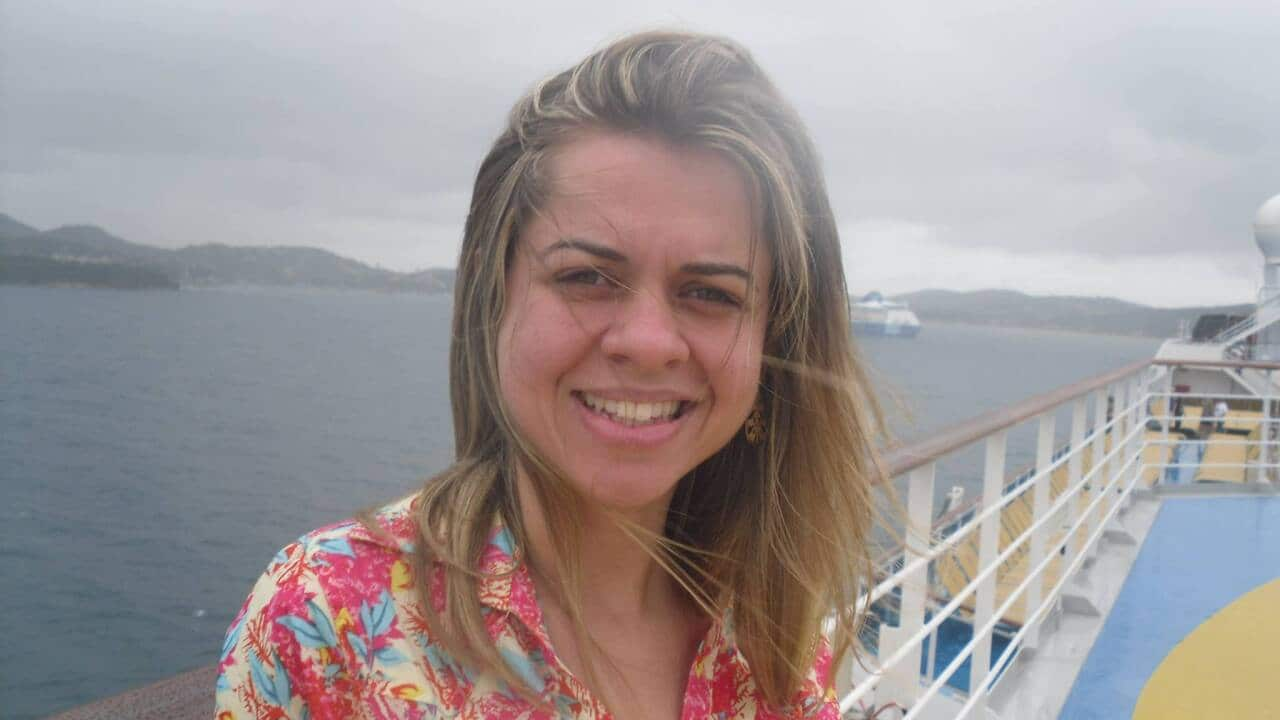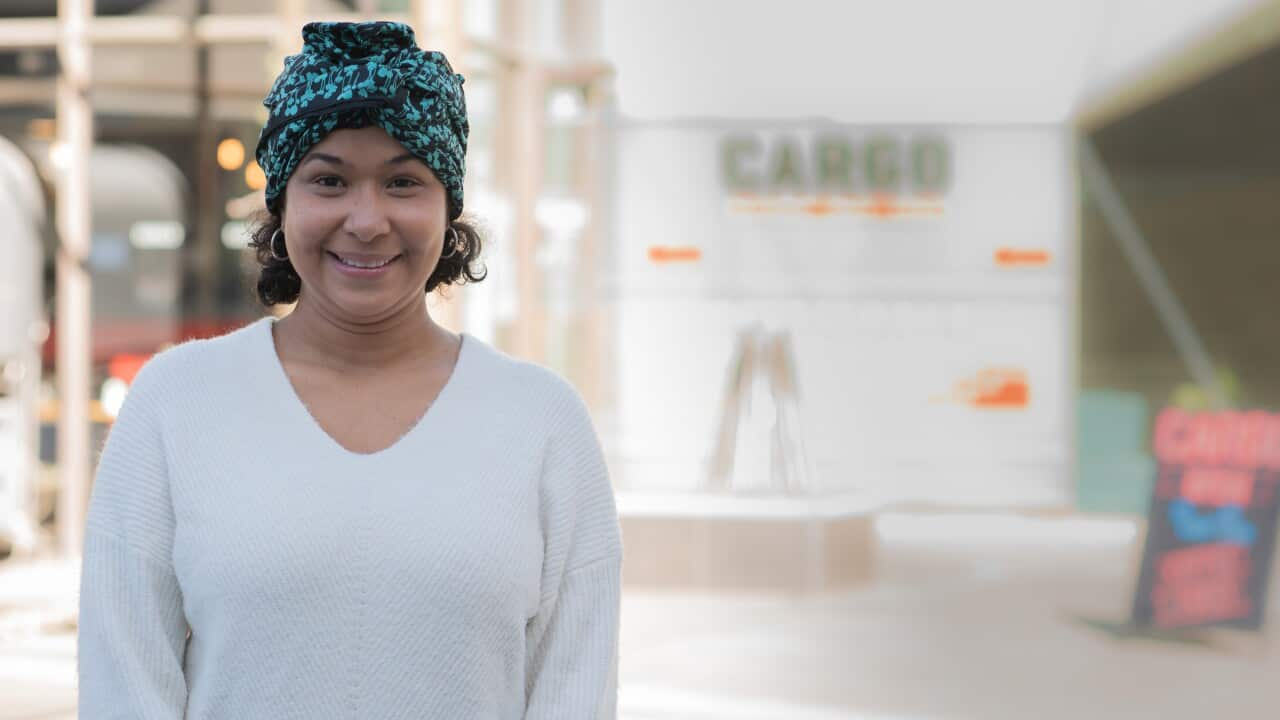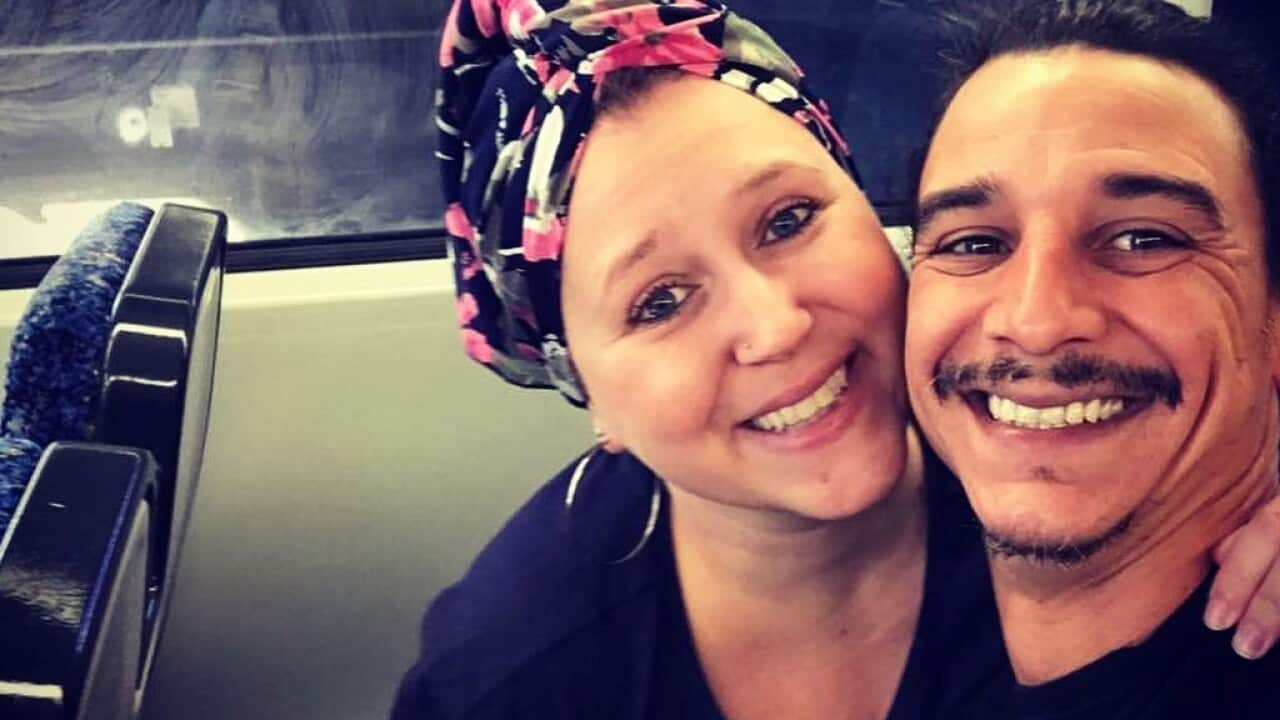Key Points
- October is breast cancer awareness month
- The number of breast cancer diagnoses dropped during the coronavirus pandemic in Australia. The country recorded a drop of 150,000 mammograms for early detection from January to June 2020.
- Brazilian teacher Paula Amaral was treated during the Covid pandemic in Melbourne and shares her experience and challenges of communicating with doctors in a second language. "The only word I understood was 'cancer'."
In October, breast cancer awareness month, SBS Portuguese interviewed four migrant women about how they coped with the pandemic on top of a cancer diagnosis. In the second of our four-part podcast series 'Living with breast cancer in the middle of a pandemic'; we spoke to Paula Amaral, Portuguese-English teacher in Melbourne.
It was a surprise, according to Paula, even for the specialist doctor who requested the biopsy, to learn that the small lump she had felt in her breast was cancer.
First thing I asked the doctor was if I was going to die, ‘Am I going to die from this?’, and she said ‘no, you are not going to die from this’
Ms Amaral recalls that the doctor then listed the 'standard treatment, surgery (lumpectomy or mastectomy), and radiotherapy. “She was talking but I couldn't hear anything anymore, I stopped at the word 'cancer'. Thankfully my husband was there and was able to process the information,” she recalls.
“I talked to my mother, my family, I didn't want to keep it to myself, I said 'I'm not sick, it's something that is in my body and has to be be removed'”
As radiotherapy at The Afred Hospital in Melbourne occurred during the pandemic, the hospital went into severe restricting measures to protect patients. “When everything started to close, nobody knew much, if I sneezed in the hospital people would ask what it was, if I had flu symptoms, if I had Covid'
As I was already living that trauma, going through cancer, one of the most feared diseases in the world, in my mind Covid wouldn't do anything bad to me.
Ms Amaral says that in addition to facing the treatment, communicating with doctors and plastic surgeons was a challenge in itself.
“I started to study the medical vocabulary, there were terms that I didn't even know in Portuguese, I asked some questions that I don't even know if the doctor understood. They gave me a guide, a book and I studied it a lot to find out what I had to ask on my next visit. There were things that I really ‘didn’t hear’, I would have preferred to speak in Portuguese. ”
Ms Amaral moved to Newcastle, New South Wales, where post-treatment monitoring continues. The dream project that had been delayed by breast cancer came true.
Ms Amaral founded the Bilingual Children's Community and maintains the popular 'Tia Paula Explica' page on instagram, which has over 3,000 followers and where she teaches literacy in both English and Portuguese (for children of Portuguese-speaking parents in Australia and worldwide ).
Despite her concerns about her future, Ms Amaral says she decided to live one day at a time and sends a message to women and men. “Don't wait for October to arrive to take care of you, do your mammogram. Don't wait to take care of your health, take care of yourself every day. ”







